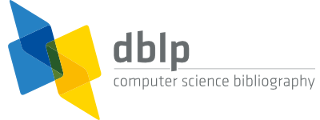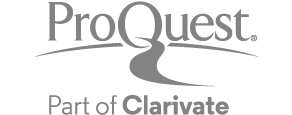
[1].png)
BACKGROUND
In the rapidly evolving landscape of the 21st century, societies worldwide are witnessing profound transformations across various spheres of life, including family structures, educational systems, and workplace environments. These changes, driven by globalization, technological advancements, and shifting socio-economic dynamics, present both challenges and opportunities for individuals, communities, and nations alike. As we navigate these complex changes, it becomes increasingly imperative to focus on advancing equality, health, and well-being to ensure no one is left behind.
Equality remains a cornerstone of social progress, yet disparities persist across gender, race, socio-economic status, and other dimensions· In many parts of the world, women, marginalized communities, and other vulnerable groups continue to face significant barriers to equal opportunities and fair treatment· As the global community works towards achieving the United Nations Sustainable Development Goals (SDGs), particularly SDG 5 on gender equality and SDG 10 on reducing inequalities, there is a pressing need for collaborative efforts to dismantle these barriers and promote inclusive practices across all sectors of society.
Health and well-being are equally critical to the flourishing of individuals and communities· The COVID-19 pandemic has underscored the importance of resilient health systems, equitable access to healthcare, and the promotion of mental health and well-being. As the world emerges from the pandemic, there is a unique opportunity to reimagine and rebuild health systems that prioritize the holistic well-being of individuals, taking into account the social determinants of health that influence outcomes across the life course. In particular, there is a growing recognition of the need to address the mental health challenges exacerbated by the pandemic, particularly among vulnerable populations such as children, adolescents, and workers in precarious employment.
Family, educational, and workplace contexts are central to realizing equality, health, and well-being. Families, as the fundamental units of society, play a crucial role in shaping the values, behaviors, and opportunities of individuals· However, changing family dynamics, including shifts in household structures, parenting roles, and work-life balance, necessitate new approaches to supporting family well-being. Educational institutions, from early childhood through higher education, are key to fostering equality and well-being, yet they face challenges in adapting to the diverse needs of learners and the demands of a rapidly changing world. Likewise, workplaces are undergoing significant transformations, with the rise of remote work, the gig economy, and automation, all of which have implications for workers' rights, job security, and work-life integration.
EVENT
3rd INTERNATIONAL CONFERENCE ON PSYCHOLOGY AND HEALTH ISSUES
THEME
Embracing Change : Advancing Equality, Health, and Well-Being Across Family, Educational and Workplace Context
SUB THEME
- Family Resilience
- Mental Health
- Abusive Behavior
- Digital Well-being
- Suicidal Intervention
- Cyber Sex
- Dating and Mating Behavior
- Organizational Well-Being
- Work Family Balance
- Problematic Internet Use
- Digital Learning
- Cyber Health
- Psychiatric Health
- Medical Health
- Emergency Health
- Pediatric Health
- Family Health
- Community Health
- Maternity Health
- Educational Psychology
OPENING REMARKS
Dr. Ir. Krismadinata, M.T
Rector of Universitas Negeri Padang
Dr. Suryanef, M.Si
Dean of Faculty of Psychology and Health, Universitas Negeri Padang
SPEAKERS
Prof. Tso Ying Lee
Director of Nursing Research Center, Taipei Medical University, Taiwan
Prof. Dr. Zulakbal bin Abd Karim
Faculty of Sports Science and Coaching, Universiti Pendidikan Sultan Idris, Malaysia
Dr. (Cand) Tesi Hermaleni, M.Psi., Psikolog
Faculty of Psychology and Health, Universitas Negeri Padang, Indonesia
Dr. Ns. Armaita, S.Kep., SKM., M.Si
Faculty of Psychology and Health, Universitas Negeri Padang, Indonesia
IMPORTANT DATES
Description | Dates |
Abstract Submission | 15 September - 25 October 2024 |
Deadline Registration | 25 October 2024 |
Full Paper Submission | 26 October - 31 October 2024 |
Conference Day | 2 November 2024 |
FEE AND PAYMENT
Online | Offline | |
Participant General Student |
Rp. 150.000 Rp. 75.000 |
Rp. 300.000 Rp. 150.000 |
Oral Presenter General Student |
Rp. 300.000 Rp. 150.000 |
Rp. 600.000 Rp. 300.000 |
International | Online | Offline |
Participant Only General Student |
USD 10 USD 6 |
USD 20 USD 12 |
Oral Presenter General Student |
USD 20 USD 11 |
USD 40 USD 22 |
Transfer Payment | Bank Nagari : 990002202200010033 |
Acount Holder | Ichopi FPK |
REGISTER & SUBMISSION
Register & Submission here : https://s.id/ICoPHI2024
1. Prof. Tso Ying Lee







